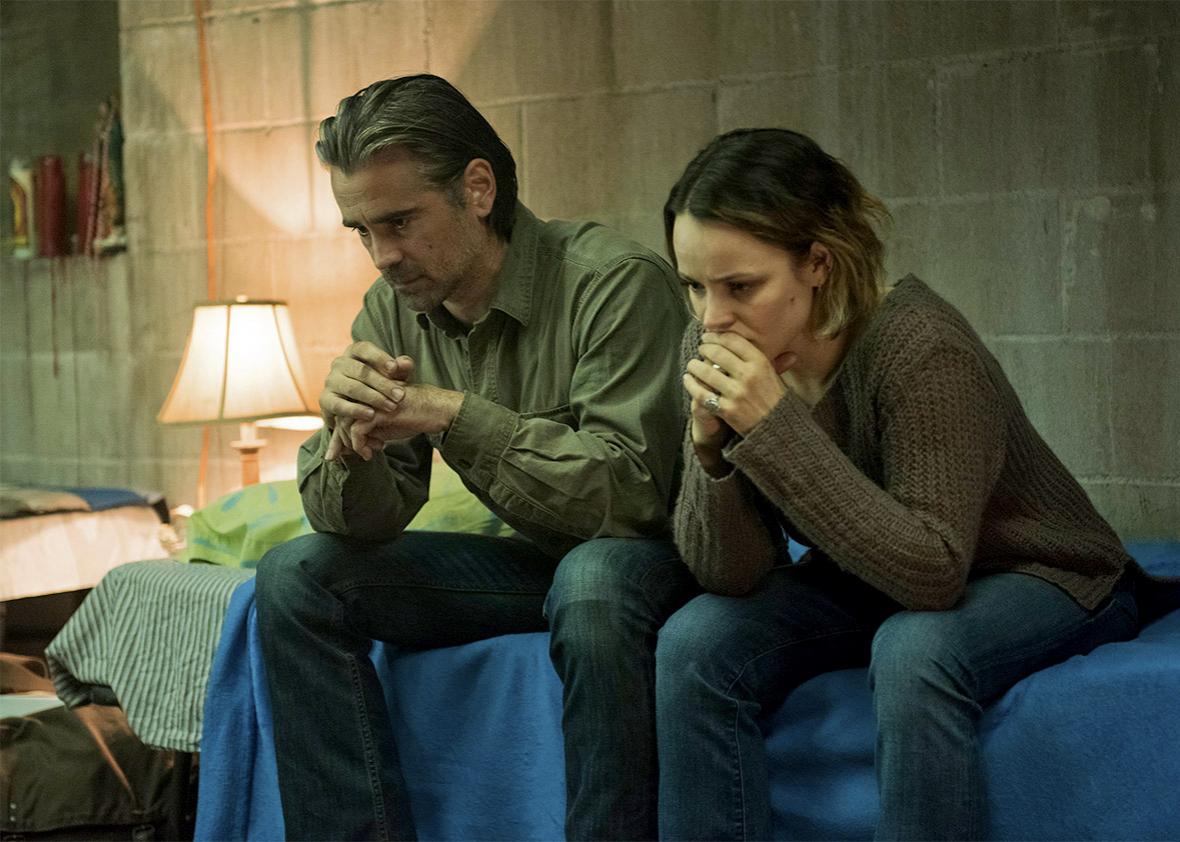By Elazar Abrahams
After a five year hiatus, HBO’s True Detective franchise is back on screens everywhere with a new creative team (Issa López replaces Nic Pizzolatto as showrunner) and a new subtitle (‘Night Country,’ which trades sweaty middle America for frigid Alaska). But this is not a blog post about that new fourth season. This is about defending the wildly misunderstood second season. After a freshman year that is widely regarded as one of the best television seasons of all time, the anthology show soon returned with eight episodes that were unfairly maligned by both critics and fans alike when it aired in the summer of 2015. The horrible reception to the sophomore outing arguably hurt the series in ways it was never able to recover from.
“A strange combination of slick overproduction and basic incompetence,” wrote Esquire. “Is this season just a parody of last season?” quipped The Observer. Time Magazine panned the season, stating it “loses the novelty of the show’s first outing and highlights the weaknesses.” As it stands, season 2 has a 47% critics score on Rotten Tomatoes, while the audience score sits at a measly 20%.
Well, here’s a scorching hot take for you: the second season is incredible television, and it rivals the first Detective installment, sometimes even surpassing it in quality. Whereas the original miniseries narrowly focused on Woody Harrelson and Matthew McConaughey’s pair of cops and a single case they tracked over decades, season 2 has a wider scope in just about every respect, be it characters, story, or themes. After the runaway success of True Detective season 1, what audiences got next was a completely unrestrained showrunner high on his own supply. It seems like most viewers didn’t appreciate that, but for those that understand the vision, it is peak storytelling.
The season stars Colin Farrel, Rachel McAdams, Taylor Kitsch, and Vince Vaughn, a stellar lineup of talent. It also doubles the amount of storylines to track compared to just a dynamic duo. Farrel, McAdams, and Kitsch all play law enforcement officers from different California counties, and following all the intertwining towns is exciting and propulsive. Vaughn turns in what could be considered a career best performance as a mob boss turned investor who is running his own investigation into the central murder of a high profile politician. There’s undoubtedly a lot going on, especially as the case reveals several connections to other injustices, including kidnappings, a brothel, and corruption among many local government officials.
The characters featured are just as strong and much more complex than they were in the first season. Farrell’s Ray Velcoro is a corrupt detective fighting for custody of his only son, while wondering if the son is his own offspring at all. McAdams is Ani Bezzerides, a brash cop who’s rough exterior masks deep religious trauma. Her role as a strong female lead is a far cry from the previous season’s women, who essentially existed as set dressing. Kitsch is Paul Woodrugh, a highway patrol officer who harbors secrets from his time as a veteran, and troubles at home. Vaugh’s Frank Semyon rounds out the principal players, a career criminal trying to make good, in his own twisted way. Each arch is well-plotted and developed, and combined with all the minor characters, makes the world feel lived in and three-dimensional. It doesn’t hurt that watching Farrell and McAdams, two of this generation’s finest actors, chew up the scripts brings a joy to cinephiles that is difficult to put into words. It feels weighty and epic, like the best neo-noir stories are. The tale is complex, and many took issue with that, but when the pieces click, building towards a wild final stretch, it is extremely rewarding.
The dialogue in season 2 is Pizzolatto’s self-seriousness on steroids. Gone are Harrelson’s quips or McConaughey’s melodramatic musings. There’s no comedic relief whatsoever here, and I can’t help but admire that. Across all the hours, all that’s being served is murder, darkness, pedophile rings, brooding, and no lightheartedness whatsoever. Any other show would need to throw in at least one funny character to break the tension, and provide some giggles. Not True Detective season 2. Indeed, this was one of the fans’ major gripes back then – “why are they all sad all the time?” If you want laughs, go watch a sitcom.
Ultimately, True Detective’s second season dared to take a risk instead of playing it safe and retreading familiar territory. We should be rewarding this, as more shows could do with the creativity and boldness Pizzolatto had here. People wanted more of the same and that’s not what they got, leaving this remarkable run of episodes to live in infamy.

